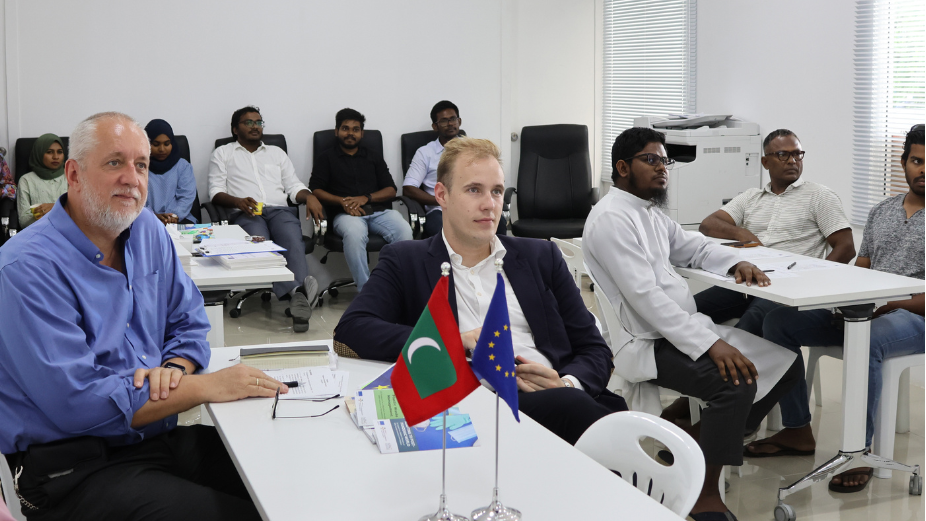
The European Union (EU), Maldives Fund Management Corporation, the Maldives National University, Maafushi Council and the local business community gathered on the island of K. Maafushi to conduct information sessions targeted towards local guesthouses. This information session was conducted under the EU-funded project “EU Support for a Resilient Recovery of SME Tourism Industry in the Maldives”.
The EU has provided EUR 2 million to help the local tourism industry to recover from the COVID-19 crisis. The goal of this project is to help build up a more resilient and diversified economy in the SME Tourism Industry in the Maldives. As part of the project, a total of EUR 1,400,000 (MVR 25,332,672) was allocated to tourism SMEs as a grant to support business operations to tide over a period where businesses struggled to survive given global lockdowns.
To date, 406 beneficiaries received a direct EU grant, out of which 341 are local guesthouses and 65 are safari vessels upon completion of component 1 of the project.
While addressing the guests, the Head of Cooperation at the EU Delegation to Sri Lanka and the Maldives, Dr Johann Hesse highlighted that “EU funding always puts people at the heart of our activities. This is why we support small guesthouses and safari vessels aligning with the Government’s agenda of spreading the tourism experience and spend in communities. We are strong believers that economic growth models
should be sustainable, not lead to polluting your beautiful islands and amazing marine biodiversity which tourists flock to your country to enjoy. Our future funding will focus on ensuring economic and environmental sustainability, which do not ultimately threaten the livelihoods and health of communities in the long run.”
The objective of conducting nationwide training sessions is to contribute towards the development of SMEs operating in the local tourism industry. The key focus areas of the sessions include adapting to a post-pandemic world, sustainability, front-office and financial management, and effective waste management. Additionally, token cheques were handed to some of the beneficiaries on the direct cash transfer component, at the conclusion of the training session.












